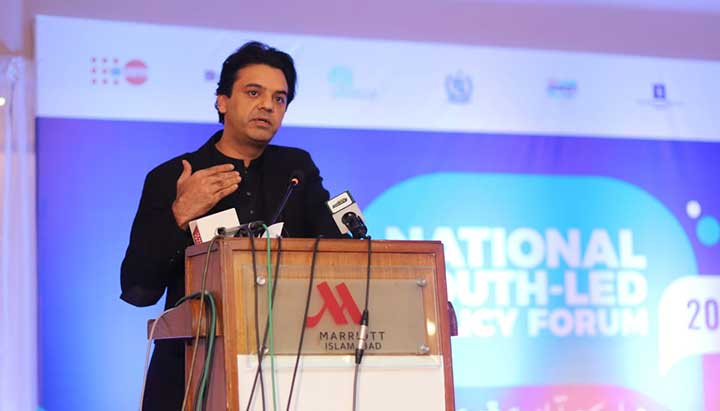By: Syed Ahsan Shah
Undoubtedly, the year 2021 has been recorded as the year of immense consolidation for humanity. With the advent of the vaccine, millions of people got inoculated against ominous viruses. Besides this, increasing trends of technological developments from the previous years continue to the day. Numerous macro-tech companies plan rigorous manoeuvres towards space missions and acquiring artificial engineering. Highly demanded scientific research is undergoing inevitable changes. Lately, a team of surgeons from the University of Maryland school of medicine successfully transplanted a pig heart to a 57 years old man David Benett.
With the invention of the vaccine, fear turned into hope for a few, not for all. For many, it created a situation of more concern as they were unable to access vaccines. Global risk experts studied the changing dynamic of the world and perceived some of the alarming risks that will prevail in the forthcoming years. This report indicates that unfair vaccination rollout is a matter of greater concern in destitute nations. Only 6 per cent of people from 52 countries, contributing to 20 per cent of the world population get vaccinated. Not only, this unequal distribution of vaccine impedes the resilient response of poor countries against covid-19 but also remains consequential for their economic recovery and digital development.
Global risk perception survey ranks failure to take enough steps on climate change as the leading risk in recent times. Considering the urgency of extreme climatic patterns, the world leaders gathered at the Glasgow summit to devise an inclusive policy to net-zero emissions. Ironically, world leaders fully aware of climate threats are not committing to their pledges. This report considers world leaders efforts a mere disorderly transition to climate challenges. Only a holistic approach based on global consensus and commitments to universal promises on climate policies can help nations maintain a 1.5-degrees threshold.
Moreover, global experts envisage extreme weather patterns as the second most dangerous risk to world nations. Heedless climate policies of world leaders are exacerbating extreme weather. Compounded with droughts, famine, and melting of glaciers, extreme weather is affecting the lives of millions. The two major incidents in recent times: forests fire in Australia and extreme water scarcity in African countries. If not now then when will the world leaders will take hard decisions, irrespective of national affinities and local interests.
Besides this, the technological risk is also highlighted among the most critical ones. Digital inequality and cyber security failure fissure the world on many fronts. This digital race is a new addition to the already intricate world challenges. The report suggests that malware and ransomware attacks are increased by 358 per cent and 435 per cent respectively. Aggressive attack methods, lack of barriers to cyber security and dearth of professionals are hindering the path towards smooth digital transition. Unlike traditional security threats, cyber risks turn out to be more dangerous If not addressed wisely and collectively. An unprepared world to take cybersecurity will further threaten global cooperation. Already vaccination drive and geopolitical issues have widened the gap of global harmony.
Just like covid-19 affected nations differently. Similarly, their post-pandemic economic recovery is uneven. Many developed nations like China witnessed an increase in their economic growth despite being hit badly by the first wave of the pandemic. Also, European nations and the US are on the path towards sustainable economic recovery. Contrary to this, developing countries are facing an exponential decline in their GDP growth. The report expresses a grim view of developing countries annual growth. It states the economy of less-resourced countries will shrink by 2 per cent by 2024.
Most importantly, the global risk report emphasis on social cohesion which is imperative to sustainable peace and prosperity in the world. Erosion of social cohesion is termed as the biggest short term global risk. In 2020, over 34 million people were displaced globally alone. Lack of social cohesion is affecting the millions locally and globally. Unemployment, involuntary migration, inflation and political crises are the apparent causes of eroded social cohesion. Involuntary migration is putting pressure on the mutual linkage of the nations. Absurdly, affluent nations are making world order based on their national interests. Exclusive approaches towards the goal problem further divide the nations. In such a scenario, lack of social cohesion is triggering livelihood crises.
Global risks are becoming more alarming since the world stepped into the digital revolution. For instance, cyber insecurity is putting a burden on the global growth and social well being of the countries. Risk indicators are highlighting the most worrying situation ahead. Economies are shrinking, political relations are eroding, and regional tensions are escalating. All the world nations ought to work collectively to prioritise global peace. Nations needs to nurture mutual relations based on trade and global security. If not now then when will the world leader gather, irrespective of their unilateral national interests?
The writer is an engineering student at UET Taxila, he writes about economic, social and political issues. He can be reached at [email protected]



